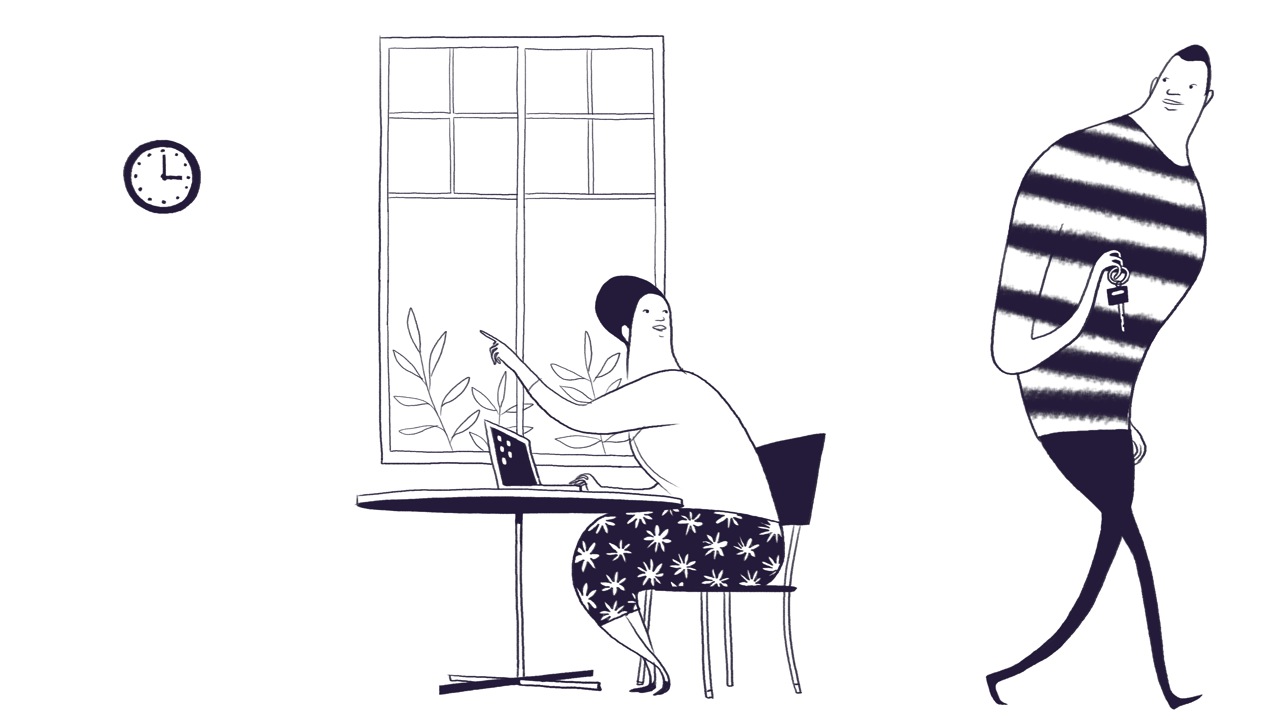[et_pb_section fb_built=”1″ _builder_version=”4.16″ global_colors_info=”{}”][et_pb_row _builder_version=”4.16″ background_size=”initial” background_position=”top_left” background_repeat=”repeat” global_colors_info=”{}”][et_pb_column type=”4_4″ _builder_version=”4.16″ custom_padding=”|||” global_colors_info=”{}” custom_padding__hover=”|||”][et_pb_text _builder_version=”4.18.0″ background_size=”initial” background_position=”top_left” background_repeat=”repeat” hover_enabled=”0″ global_colors_info=”{}” sticky_enabled=”0″]
This is a modified version of a post we originally published on our member site. Dominique Simon-Levine responds to a member’s comment…
There is so much in your comment: the inability to trust your daughter or to control her behavior in your home, the fear of her using again, the belief that you can protect her from herself, and the disbelief at her refusal to see alcohol as an essential part of the problem.
Accept that control is an illusion, and recovery is a process
One thing is for sure: it is not possible to control or to police your way out of this. The approach on our site helps you design an environment around your daughter that is conducive to her recovery. The environment you create helps set down a clear line that also prioritizes your healing and peace.
Your daughter is following a recovery program now that she is back from rehab. She is staying away from the drugs but is drinking. Alcohol wasn’t the problem, according to her, so it is safe to drink in her mind.
We so much want recovery to be instant and complete, but getting clean and sober is a process, one that often takes repeated attempts. Continuing to smoke pot or to use alcohol or some other drug that wasn’t the issue, is so very common. It’s where terms like “marijuana maintenance plan” come from. Either the use of this drug is successfully moderated or it becomes a problem in itself to the point where the person realizes they need to stop this drug, too.
What we’ve already written about your loved one coming home
It’s worth reviewing our posts that address the question of your child living at home. Some of the following posts are available only on our member site. See if you qualify for free membership here.
- Please Don’t Come Home
- Vivitrol: For Both Alcohol and Opiate Addiction
- Using Home as a Reward
- Should I be Paying for College?
- She’s Headed Home Now, Now What?
- Are We Enabling if We Don’t Charge Him Rent?
An ideal home environment for your adult child, home from rehab
Here’s my brief sketch of the ideal home environment for an adult child (and I am very aware that I get to sit in front of my keyboard and think up these perfect scenarios.)…
1 ⇒ Take their childhood bedroom and make it your reading, painting, music, exercise, and/or meditation room.
2 ⇒ Set up a day bed in the corner of somewhere public in the home, the corner of the living room or den.
3 ⇒ Provide a locker for their things.
4 ⇒ Ask them to respect your home by not coming home if they’ve been using. They are welcome back when they’ve sobered up.
5 ⇒ Ask them to join you on Sundays for dinner where you do a brief 10-minute check-in about recovery and your relationship, AND where the rest of the evening is kept light and off the hard topics.
6 ⇒ Work out for yourself where you’re willing to help out: short term rent money, cell phone, help with transport and always treatment.
7 ⇒ Leave the rest of their life to them to sort out.
(please read our blog post on setting up a Daybed and Footlocker to create a home environment for an adult child in recovery)
Let’s talk about trust
On the issue of trust: Trust that has been lost is not easily earned back. It can take years of perfect behavior to truly trust someone again. Trust-building comes in stages, has setbacks, and hopefully still makes steady progress. Accept the partiality of trust when it comes to your daughter.
Stopping the use doesn’t instantly fix a difficult personality, feelings of entitlement, or procrastination. It doesn’t instantly teach them how to handle money or relationships, or how to be accountable or grateful. Life will teach them these things, and getting out of the way is the best first step parents must take towards letting life be your loved one’s teacher.
Though it may seem counter-intuitive, by pulling back some, and creating some clearer boundaries, as this post suggests, you may well find some peace.
Join our Member Site today to take full advantage of Allies in Recovery’s program, including 8 video modules, two blogs, and dialogue with experts in the field of treatment and recovery. Learn more here.
[/et_pb_text][/et_pb_column][/et_pb_row][/et_pb_section]




